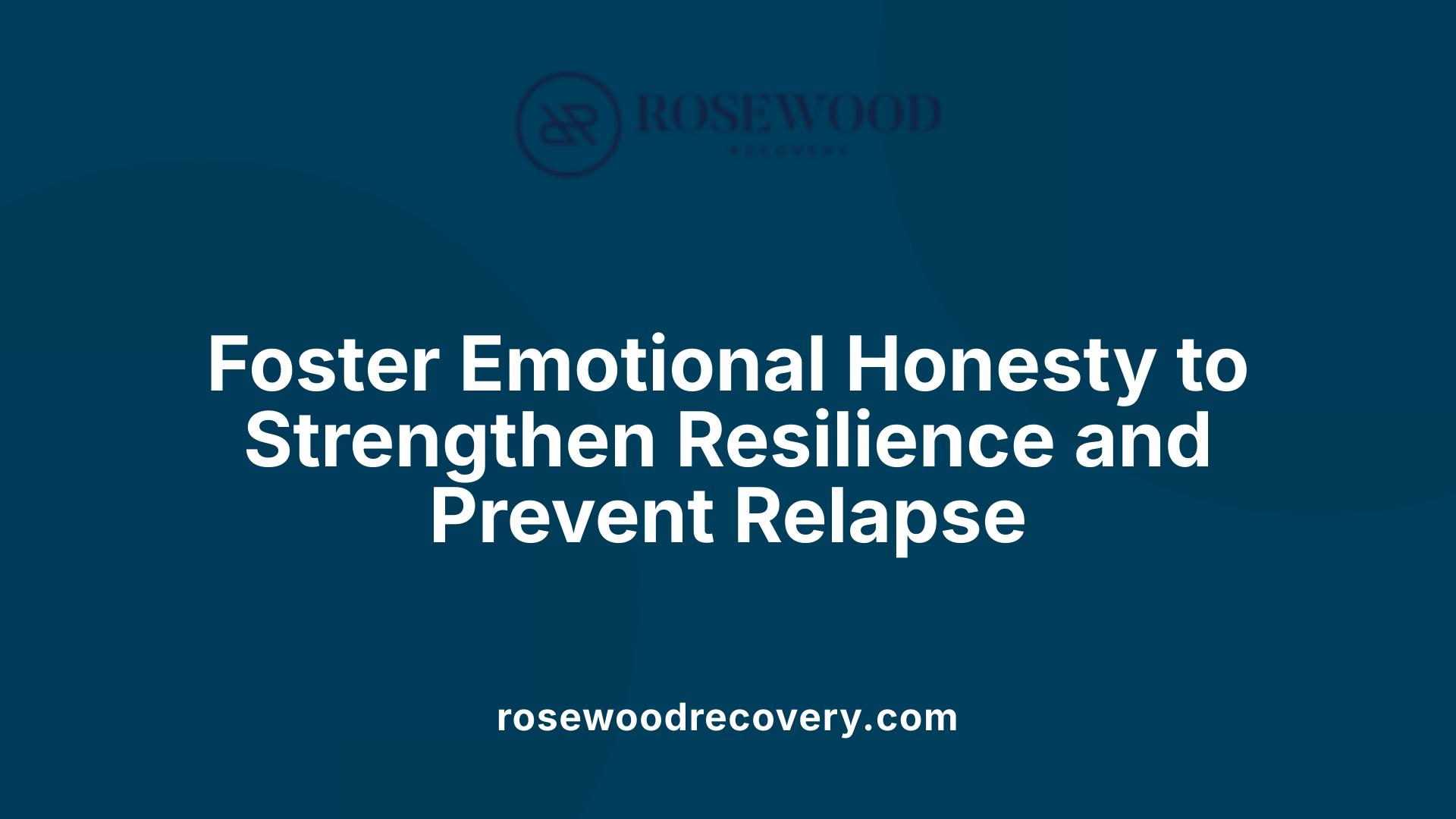Understanding Emotional Truth in the Journey to Sobriety
Authenticity in recovery is rooted in the willingness to embrace complete honesty—not just with others, but fundamentally with oneself. Emotional truth-telling unlocks a path toward genuine healing by allowing individuals to confront suppressed feelings and acknowledge the full extent of their addiction and mental health challenges. This article explores how emotional honesty fosters effective treatment, restores trust, and sustains long-term sobriety.
The Role of Complete Honesty in Effective Treatment

Why Is Complete Honesty Important in Recovery?
Complete honesty means sharing the full truth without holding back details. This openness is essential because it allows healthcare providers to assess addiction and mental health accurately. Without full honesty, conditions may be underestimated or misunderstood, which can lead to ineffective treatment and increased risk of relapse.
How Does Honesty Aid in Tailored Treatment Plans?
When individuals are truthful about their struggles, clinicians get a complete picture of their challenges. This information helps tailor treatment plans to meet specific needs. Tailored plans increase the chances of success by addressing unique issues and triggers rather than using a one-size-fits-all approach.
Why Is Self-Truthfulness Crucial?
Being honest with oneself about the addiction's severity is vital for effective treatment. Self-honesty promotes ownership of the recovery journey and helps rebuild trust with loved ones. It also reduces tendencies like denial and blame-shifting, which can sabotage progress.
What Are Signs of Dishonesty in Recovery?
Common signs include:
- Denial of the addiction or mental health problem
- Shifting blame onto others
- Manipulation to hide substance use
- Avoiding responsibility for recovery efforts Identifying these signs early can help individuals and providers address barriers to honest communication.
How Does Complete Honesty Improve Recovery Outcomes?
Honesty facilitates emotional openness, helping people confront feelings masked by substances, such as guilt and fear. Therapies like Cognitive Behavioral Therapy (CBT) and Dialectical Behavior Therapy (DBT) support emotional honesty, resilience, and healthy coping skills.
What Comprehensive Treatment Services Support This?
Comprehensive programs combine medical detox, psychotherapy, medication-assisted treatment, and behavioral therapies. They often include support groups, family participation, and tailored plans for diverse populations. These services rely on ongoing honest communication to adjust care effectively.
| Aspect | Importance | Description |
|---|---|---|
| Complete Honesty | Enables accurate assessment | Full truth allows precise understanding of addiction severity and related issues. |
| Tailored Treatment Plans | Improves effectiveness | Customized interventions based on honest reporting. |
| Self-Truthfulness | Builds ownership and trust | Self-awareness reduces denial and promotes commitment. |
| Signs of Dishonesty | Flags potential treatment barriers | Recognizing denial, blame, and manipulation helps redirect efforts. |
| Emotional Honesty | Supports coping and relapse prevention | Open emotional expression lowers relapse risk and enhances relationships. |
Complete honesty acts as the foundation of successful addiction treatment, enabling individuals to access appropriate support and fostering an environment conducive to lasting recovery.
Embracing Emotional Truth as the Path to Authentic Recovery
In recovery, emotional truth-telling is more than a therapeutic tool—it is the foundation of authenticity. By facing difficult emotions and realities with honesty, individuals can break free from denial, build trust with loved ones and care providers, and access the full spectrum of supportive treatment services essential for sustained sobriety. Recovery is not merely about abstaining from substances but about transforming one’s relationship with oneself and others through courageous and ongoing emotional honesty.




